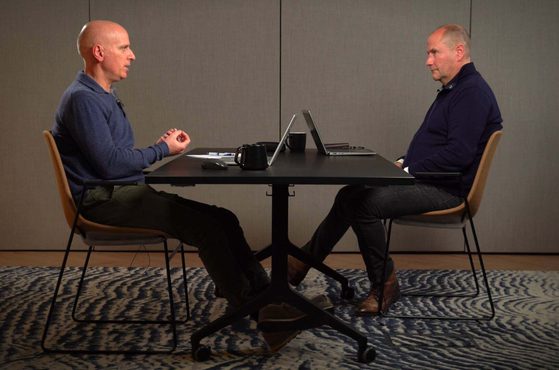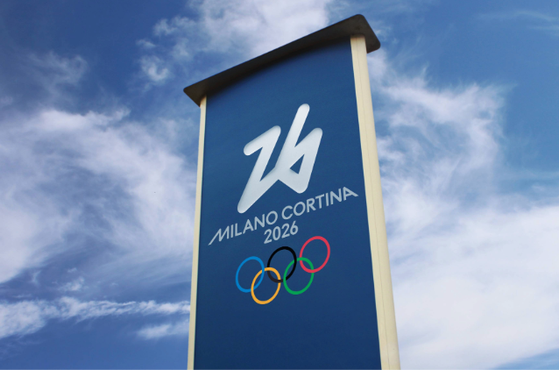Government to consult on unlicensed gambling operators sponsoring British sports

We explore the consultation background, the regulatory concerns driving it and what it could mean for clubs with existing or future sponsorship deals.
Read more
We make the difference. Talk to us: 0333 004 4488 | hello@brabners.com
AuthorsAnthony Grogan

In recent years, women’s football has taken significant steps towards commercial and operational independence. A landmark moment came in August 2024, when responsibility for the Women’s Super League (WSL) and Championship was transferred from The FA to the Women's Professional Leagues Limited (WPLL) and this shift has been mirrored at club level.
Such developments have started to signal a clear trajectory — women’s football is no longer an appendix to the men’s game but an increasingly self-sustaining enterprise with its own governance and commercial priorities.
Yet with some clubs selling women’s teams to ‘themselves’ and various other asset divisions and ownership changes taking place across the board, Anthony Grogan — a corporate lawyer with expertise in the sports sector — explores some of the legal considerations for clubs in ‘hiving out’ their women’s team from existing corporate structures.
As you’ll see, this approach promises great operational and financial benefits yet introduces a web of legal and regulatory challenges.
It’s no secret that regulatory pressure has been a key factor behind a recent wave of restructurings. Under the Premier League’s Profitability and Sustainability Rules (PSR), clubs are limited to cumulative losses of £105m over a rolling three-year period, with breaches now attracting severe sanctions including points deductions.
While certain costs are carved out from PSR loss calculations — including investments in women’s teams — recent high-profile examples across the game demonstrate that hiving-out women’s team operations to ‘sister’ companies within existing group structures prove a potential means for teams to unlock value on their balance sheets while staying within PSR thresholds.
However, while the Premier League hasn’t yet taken steps to tighten the rules regarding the sale of assets to related companies, it’s reported that it continues to review particular transactions to ensure that they were conducted at ‘fair market value’ and in accordance with Associated Party Transaction (APT) rules. Additionally, UEFA’s rules on APTs are considered to be stricter than the Premier League’s, which is why the European governing body hasn’t recognised some transactions for Financial Fair Play purposes. Clubs must therefore be aware of the regulatory limitations in this area and be prepared to justify the values used in any demerger, since any overstatement could trigger scrutiny.
However, independence doesn’t need to be just a simple accounting exercise. It can mark a strong commercial and cultural shift, proven by successful case studies such as Angel City FC in the US which show that a strong, values-driven identity rooted in the women’s game can unlock new audiences and revenue streams.
An even more striking example is OL Lyonnes (formerly Olympique Lyonnais Féminin) following its majority acquisition by Michele Kang (owner of the Washington Spirit and London City Lionesses) from OL Groupe in 2024. Reportedly valued at around €50m, the deal carved out Lyon’s women’s side from the men’s structure while preserving access to key facilities such as Groupama Stadium, the OL Training Center and the OL Academy. Alongside allowing for the team to undergo a complete rebranding exercise (including a new name and logo), the move has since gone on to unlock new strategic partnerships and secure previously inaccessible sponsorship arrangements including that with Kang’s Kynisca Sports International (a prominent investor in female-focused sports science research and training infrastructures).
For clubs considering decoupling their men’s and women’s teams, the first challenge is structural. From a corporate perspective, clubs will need to consider where women’s teams currently sit within existing ownership groups and where they ought to sit post-completion. For instance, does the women’s team currently exist within a separate company to the men’s team? If not, a completely new entity will likely need to be incorporated. Upon doing so, should that entity remain a subsidiary of an incumbent parent company (i.e., as a sister company of the men’s entity) or should it spin out of the existing structure entirely? The answers to these questions will also be pivotal in identifying potential deal structures.
Ownership changes will almost certainly trigger EFL (English Football League) and WSL ‘change of control’ provisions and Owners and Directors Tests (OADTs), whereby shareholders and managers must meet (or at least continue to meet) set ethical and financial suitability criteria. While both the men’s and women’s games have their own OADTs, compliance with the processes under them is essential, since prior approval to any transfer of ownership or material restructuring is mandatory. Early dialogue with the relevant governing bodies here not only mitigates these risks but also helps clubs to align their restructuring timetable with regulatory windows.
Another critical consideration in any hive-out is how the newly formed women’s entity will be financed. Clubs must determine whether any new entity will be funded through equity injections, inter-company loans or third-party investment. While the notorious Profit and Sustainability and Associated Party Transaction rules are specific to the Premier League, they must still be considered when any demerger affects a men’s Premier League club. Furthermore, the new Financial Sustainability Regulations (FSR) that apply to women’s clubs introduce new regulations that cap permitted squad spend at 80% of Relevant Revenue (defined as revenue directly attributable to the women’s football activities of the club) plus additional Relevant Cash Funding from the club’s group (subject to a threshold of the higher of 25% of Relevant Revenue or £4m). While group financial support is permitted, it must be provided as a non-repayable gift and within set limits.
Depending on each club’s individual circumstances, each corporate restructuring carries its own financial, regulatory and governance implications. Directors should pay particular attention to the laws that surround intra-group transfers and distributions, since any failure to abide by them can (in worst cases) result in personal liability. We’d suggest that legal, accounting and tax experts should be involved at every step of the process to ensure legal compliance and minimise regulatory risk.
Management teams must therefore consider to what extent women’s clubs can operate independently from men’s set-ups and to what extent resources will need to be shared across the group. This is a comprehensive exercise that requires a review of all your women’s operations. For instance, take intellectual property. Clubs will need to ascertain who owns the trade mark for the women’s entity’s crest and name and under whose name digital assets are registered. Management must then decide who retains the ownership of these assets moving forward — if it’s to remain with the men’s, robust licensing agreements ought to permit and govern usage by the women’s team. Media rights are another significant area to consider.
Real estate facilities are a further critical consideration. Many women’s teams currently share stadiums and training grounds with their men’s counterparts. Post-separation, these arrangements ought to be formalised through leases or licences that address scheduling, maintenance and branding. Where the women’s club seeks to acquire additional proprietary interests in venues and training grounds, consents from lenders, local authorities and third-party landlords may all come into play.
Clubs should lastly formalise any revenue-sharing arrangements for shared rights and ensure that all licensing, branding and sponsorship contracts comply with regulations. The FSR sets out that only revenue directly generated by the women’s club (such as standalone sponsorships, ticket sales and merchandising) counts towards the club’s Relevant Revenue for salary cap purposes.
Demergers will often trigger employment law considerations, particularly under the Transfer of Undertakings (Protection of Employment) Regulations 2006 (TUPE). Where players, coaches, senior managers and even groundsmen are to be transferred to a new entity, TUPE will come into play and seek to protect existing terms and conditions. Clubs will then need to be aware of their consultation and information-sharing obligations. Where contracts aren’t transferred but instead novated or re-issued, care must be taken to avoid inadvertently breaching existing terms and triggering claims. A coordinated approach between a club’s HR and payroll teams and legal advisors is essential to ensure a smooth transition here.
From a more regulatory perspective, any newly issued player contracts should of course be registered with the league through its player registration system. However, clubs should also ensure that these contract terms continue to comply with the minimum requirements set out in WSL Rules. For instance, Holly Murdoch — the chief operating officer of WSL Football — has in recent weeks revealed that minimum salaries are being introduced in the WSL and WSL2 this season. These salaries will be based on thresholds such as the age of players, what league they’re playing in and their experience in the game.
With the women’s game poised for unprecedented growth, clubs should consider whether now is the time to take a strategic, legally robust approach to independence.
Decoupling a women’s football club is a complex, multi-track project that touches corporate law, IP, real estate, employment law and sports regulation. Done well, it can create a platform for growth, investment and brand distinction. Yet done poorly, it risks regulatory sanctions, financial exposure and reputational harm.
Specialist advice is essential at every stage of the process. Clubs should engage experienced legal, financial and regulatory advisors who understand both the unique dynamics of football and the evolving regulatory landscape.
Our specialist and multi-award-winning sports law team is recognised nationally and internationally as one of the largest and most experienced multidisciplinary legal teams in the industry.
We serve an exceptional client base that includes elite sports clubs, national governing bodies, international federations and large sports agencies both throughout the UK and around the world, as well as high-profile individuals across the sector on a range of sporting, commercial and private client legal matters.
Talk to our experts today by giving us a call on 0333 004 4488, sending us an email at hello@brabners.com or completing our contact form below.

Loading form...

We explore the consultation background, the regulatory concerns driving it and what it could mean for clubs with existing or future sponsorship deals.
Read more

We discuss the mounting dangers of AI-powered cybercrime across the world of sport with David Andrew — the Founder and Managing Partner of Tiaki.
Read more

We explore how structural, environmental and organisational shifts are shaping the 2026 Winter Olympic and Paralympic Games.
Read more